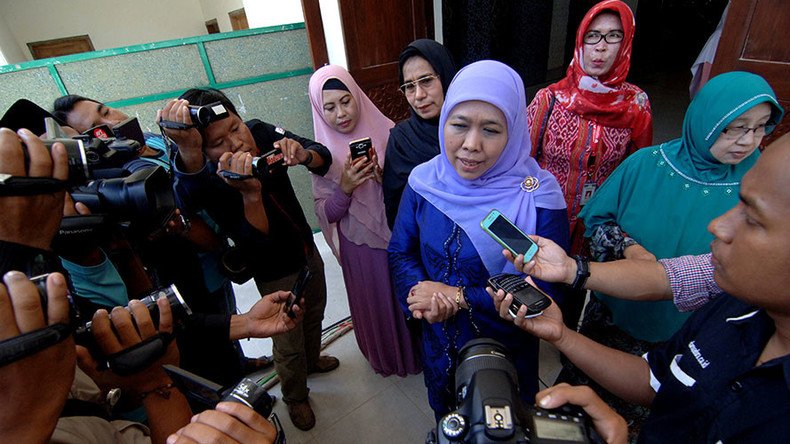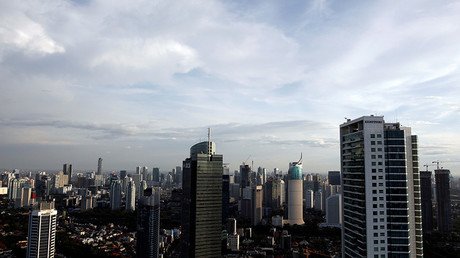Doorless dorms to stave off gay sex: Islamist Indonesian minister ridiculed for ‘nonsensical’ plan

Indonesia’s controversial social affairs minister, Khofifah Indar Parawansa, has caught social media flak after voicing her plan for doorless student accommodation to prevent gay and pre-marital sexual liaisons, as part of a wider crackdown on “moral degradation.”
Khofifah said she was inspired by a visit to a campus at a “very prestigious university,” which she avoided naming, that had already implemented the policy.
“When we asked why, they said they had anticipated the possibility of sex and so they removed the doors so that that behavior would not happen. That’s why I’m recommending university dorms, both male and female, remove their doors,” she told Antara news agency during a trip to Semarang, in Central Java, over the weekend.
When asked about the privacy implications of getting changed and conducting all personal life in full view of passersby, the 51-year-old politician retorted: "A dormitory is either all male or all female. What privacy?"
While that statement implies that the chances of the sexes mixing in dorms are already low as it is, the minister said that the measure is aimed as same-sex relationships.
“It’s not only men and women who are doing it [having sex]. The thing that is equally dangerous is men with men and women with women,” said the member of the Islamist PKB party.
Khofifah has previously made statements accusing LGBT activists of trying to “turn underprivileged children into homosexuals,” and has also lobbied for gay people to be given psychiatric treatment that would “cure” them of their “disorder.”
Human rights organizations and students united to try and bolt the door on the proposal.
"Such a plan, if true, obviously does not make sense," Bonar Tigor Naipospos, deputy chairman of Setara Institute, an Indonesian human rights NGO, told Reuters.
“A door represents the individual need for privacy. Yet the state, for reasons of morality, wants to smash through that door and make the behavior and consciousness of individuals uniform,” continued Naipospos, who questioned if the minister had conducted any factual research about student behavior, prior to launching the plan.
Students took to Twitter to voice their discontent.
"Khofifah recommends doorless dorms to avoid premarital sex. Then sexual harassment and theft will run riot," stated one user.
“They can do it in the bathroom! So bathrooms will be doorless too? Then I’ll go around to the girls’ dorms more often!!" joked another.
While putting this particular proposal into practice may prove problematic, it comes amid an intense and profound constitutional and social battle in the world’s fourth most populous nation, in which Khofifah is a key protagonist.
The minister is one of the highest-profile members of the Family Love Alliance, a group of Islamic politicians and activists that is seeking to make pre-marital sex a crime punishable by jail, and to equate adult homosexual relations to pedophilia, and other sex crimes.
The Constitutional Court is set to rule on its proposals next month.
“We are gravely concerned about the moral degradation happening in our country and we strongly disagree with the arguments presented by those rejecting our petition — that what is going on in people’s bedrooms is private and will not affect other people,” Rita Soebagyo, the chairperson of the Family Love Alliance, told the Australian.
“We also disagree with their [social liberals’] version of sex education. They say it’s OK for unmarried people to have sex as long as you wear contraceptives. This is against the values of our religion and our culture.”
Parliament is also separately discussing a new criminal code, which also strives to prosecute pre-marital sex in the world’s biggest majority-Muslim state, where almost 90 percent of the 250 million citizens espouse Islam.
“People are now afraid that what happened in Iran and Syria could happen here. People are talking about it now,” Nursyahbani Katjasungkana, founder of the Indonesian Women’s Coalition and Legal Aid, an NGO, told the Australian. “Just last week President Jokowi told the BBC our constitution guaranteed freedom of expression but it seems to me his statement is contradictory to what is actually happening.”















